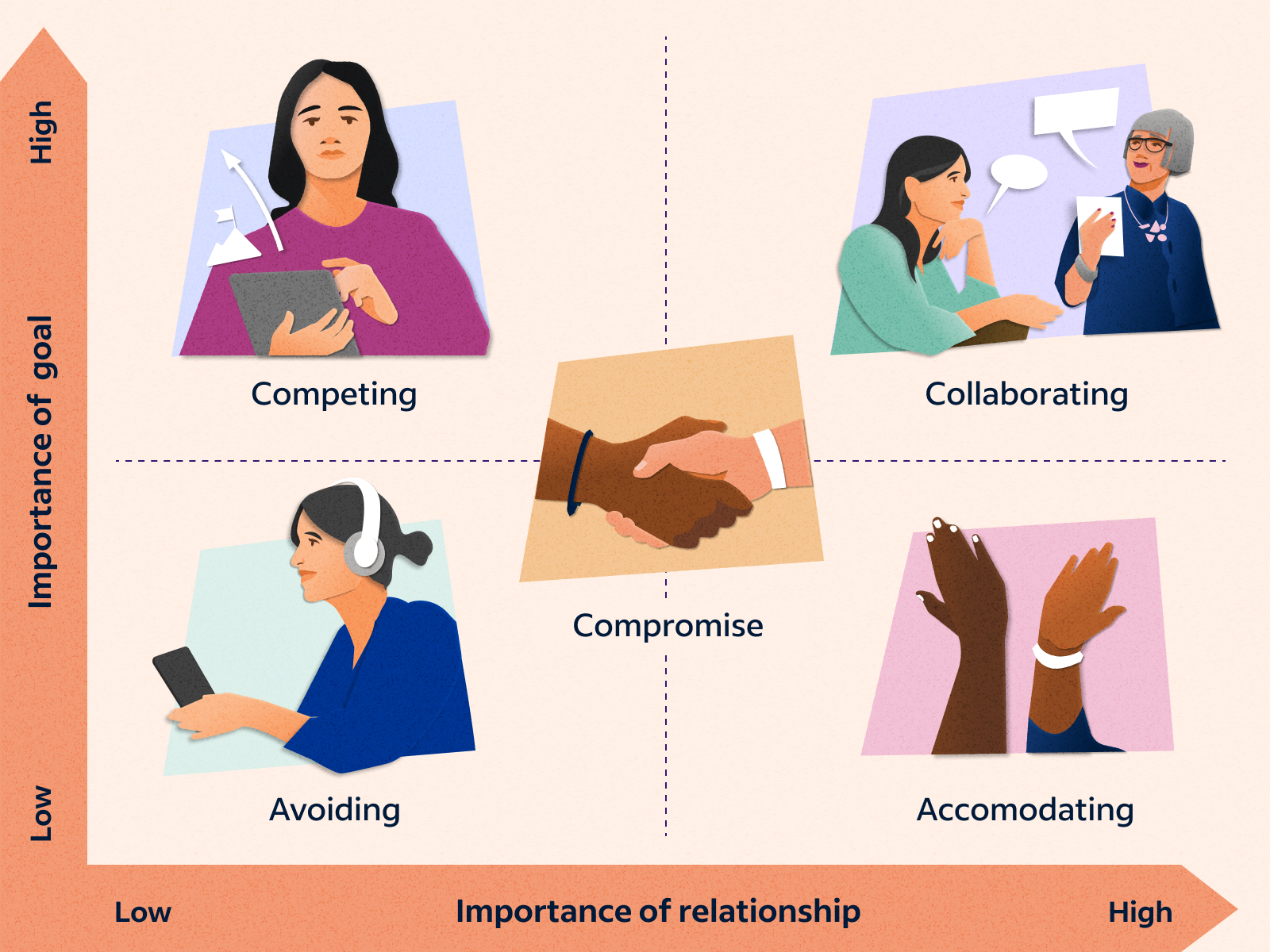
Understanding In-Law Conflicts
Definition of In-Law Conflicts
In-law conflicts typically arise from disagreements or misunderstandings between a person and their partner’s family members. Such conflicts can range from minor annoyances to major disputes, affecting everyone’s emotional well-being.
Common Causes of In-Law Conflicts
Identifying the roots of in-law conflicts can help address them effectively. Some common causes include:
- Differences in Values: Varied cultural backgrounds or parenting styles can lead to clashes.
- Lack of Boundaries: Overstepping personal space or family roles may cause friction.
- Poor Communication: Misunderstandings can escalate when family members can’t express their feelings.
For example, a new couple might struggle if one partner’s parents frequently critique their lifestyle choices, leading to tension.

Importance of Addressing In-Law Conflicts
Impact on Relationships
Addressing in-law conflicts is crucial, as unresolved issues can strain relationships between partners. When one spouse feels caught in the middle, it may lead to resentment and disconnect.
- Communication Breakdown: Lack of open dialogue can create emotional distance.
- Stress: Ongoing conflicts can increase stress levels for the couple.
Consider a couple where one partner avoids family gatherings due to ongoing tension, impacting their bond.
Effects on Family Dynamics
In-law conflicts can ripple through family dynamics, affecting everyone’s interactions.
- Alienation: Family members may feel divided or forced to choose sides.
- Atmospheric Tension: Gatherings may become uncomfortable, detracting from joy.
For instance, family events can turn awkward if underlying conflicts are unresolved, making everyone uncomfortable.
Effective Communication Strategies
Active Listening Techniques
Implementing effective communication can significantly mitigate in-law conflicts. One vital strategy is active listening, which involves fully engaging in the conversation.
- Focus Attention: Show you are listening by maintaining eye contact.
- Reflect Back: Summarize what the other person has said to ensure understanding.
For example, when a mother-in-law expresses concerns, responding with, “I understand you feel worried about our choices,” can open up a constructive dialogue.
Setting Boundaries
Setting clear boundaries is essential for maintaining healthy relationships with in-laws. Boundaries help define acceptable behavior and prevent misunderstandings.
- Identify Limits: Discuss what feels comfortable for you and your partner.
- Communicate Calmly: Share your boundaries gently, without blame.
Consider a couple that decides together how often they will visit in-laws, creating a structured plan that respects both sides of the family.

Managing Expectations
Realistic Expectations in Relationships
Managing expectations is crucial for navigating relationships with in-laws. It’s essential to recognize that no family is perfect, and conflicts are normal.
- Understand Limitations: Accept that not every visit will be enjoyable.
- Set Achievable Goals: Aim for progress rather than perfection in your relationships.
For instance, expecting a harmonious family dinner might lead to disappointment, but focusing on open conversation can lead to improvement.
Role of Compromise and Flexibility
Compromise and flexibility play vital roles in managing in-law relationships. Both sides should be willing to meet halfway for a more peaceful coexistence.
- Explore Options Together: Discuss what works for everyone involved.
- Be Open to Change: Adapt plans based on evolving family dynamics.
For example, a couple might agree to alternate holiday celebrations to accommodate both families, fostering goodwill and understanding.

Seeking Professional Help
When to Consider Counseling
Sometimes, conflicts with in-laws can escalate to a point where self-resolution feels impossible. Recognizing when to seek professional help is crucial.
- Persistent Issues: If arguments recur without resolution.
- Emotional Distress: Feeling consistently anxious or overwhelmed regarding family interactions.
For example, if family gatherings become a source of dread rather than joy, it may be time to consider counseling.
Benefits of Family Therapy
Family therapy can offer invaluable support for addressing in-law conflicts. Engaging with a professional can lead to significant improvements.
- Improved Communication: Therapists can teach effective communication techniques.
- Neutral Ground: A safe space to express feelings without fear of retribution.
For instance, a couple could learn to articulate their boundaries with in-laws better, leading to clearer expectations and healthier relationships.

Conflict Resolution Techniques
Mediation and Problem-Solving
When in-law conflicts arise, mediation can serve as a valuable tool for resolution. Involving a neutral third party can help facilitate discussions effectively.
- Establish Ground Rules: Set guidelines to maintain respectful conversation.
- Identify Core Issues: Focus on the root of the conflict rather than surface-level disagreements.
For instance, a mediator can help both sides express their feelings while keeping the conversation productive, promoting a better understanding.
Forgiveness and Reconciliation
Forgiveness plays a crucial role in conflict resolution, enabling individuals to move forward. Embracing forgiveness can lighten emotional burdens.
- Acknowledge Feelings: Recognize the hurt before moving toward healing.
- Open Dialogue: Discuss past grievances to foster understanding.
For example, a husband may need to forgive his mother-in-law’s criticisms to strengthen both his partnership and family ties, paving the way for a more harmonious relationship.
Cultivating Empathy and Understanding
Putting Yourself in Their Shoes
Empathy is essential for resolving in-law conflicts and fostering stronger family bonds. By putting yourself in others’ shoes, you can better understand their perspectives.
- Ask Questions: Inquire about their experiences to gain insights.
- Reflect on Similar Experiences: Consider times when you felt misunderstood.
For instance, a daughter-in-law might recall her own struggles with family acceptance, helping her relate to her mother-in-law’s feelings during challenging conversations.
Promoting Respect and Empathy
To nurture a respectful environment, it’s vital to actively promote empathy within family dynamics. Demonstrating respect for differing viewpoints encourages open dialogue.
- Use Kind Language: Communicate with care, even during disagreements.
- Acknowledge Efforts: Recognize the attempts made by in-laws to connect or bridge gaps.
For example, when an in-law expresses concern over family traditions, responding with understanding rather than defensiveness can cultivate a more positive atmosphere for future interactions.

Setting Healthy Boundaries
Establishing Boundaries with In-Laws
Establishing healthy boundaries with in-laws can significantly improve relationships and reduce conflict. Boundaries help define what is acceptable and protect personal space.
- Identify Personal Needs: Reflect on what makes you uncomfortable.
- Discuss Together: Both partners should agree on the boundaries to present a united front.
For instance, a couple might decide that they need to limit unsolicited advice about parenting to maintain their confidence as new parents.
Communicating Boundaries Effectively
Once boundaries are set, communicating them effectively is key to ensuring mutual understanding. Being tactful yet assertive can help convey your needs without escalating tensions.
- Choose the Right Time: Discuss boundaries during calm moments rather than heated interactions.
- Be Direct but Kind: Clearly articulate your boundaries while emphasizing respect for their feelings.
For example, a gentle approach, such as stating, “We appreciate your input, but we’d like to make our own choices regarding parenting,” helps maintain a respectful dialogue while asserting boundaries.

Strengthening Your Relationship
Fostering Positive Interactions
Strengthening relationships with in-laws revolves around fostering positive interactions. Creating joyful moments can shift the focus from conflict to connection.
- Plan Fun Activities: Organize family outings that everyone enjoys, such as game nights or picnics.
- Celebrate Achievements: Acknowledge milestones and successes within the family.
For example, celebrating a birthday together can serve as a heartfelt opportunity to bond and create lasting memories.
Building Trust and Understanding
Building trust and understanding is fundamental in any relationship. This requires commitment and consistent effort to enhance family ties.
- Be Reliable: Follow through on promises and commitments to show you care.
- Practice Transparency: Openly share your thoughts and feelings, inviting honest discussions.
For instance, when navigating difficult topics, such as financial decisions, sharing your reasoning can foster understanding, promoting trust and collaboration. This builds a solid foundation for a more harmonious relationship with your in-laws.
